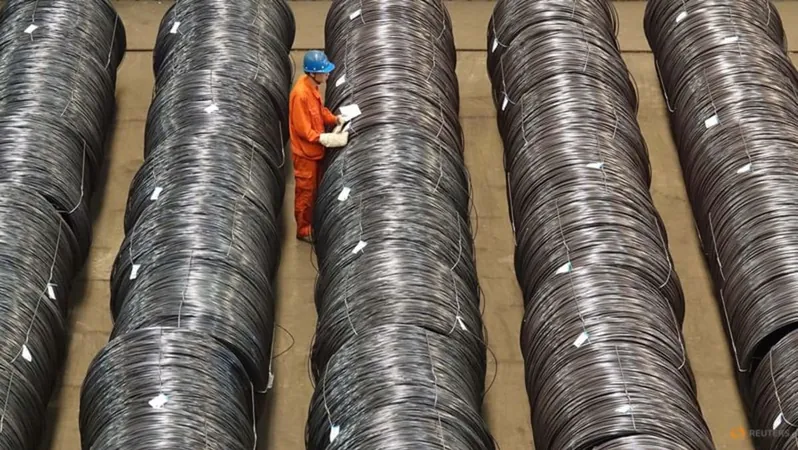
China's Steel Subsidies: A Global Market Distortion
2025-05-27
Author: Wei Ling
China's Steel Empire Faces International Scrutiny
In a striking report released on May 27, the Organisation for Economic Cooperation and Development (OECD) has called out China for its hefty subsidies to steel manufacturers, asserting that these financial supports are severely distorting the global steel market. This trend not only undermines fair competition but also hinders vital investments needed for decarbonizing the industry.
As the world’s largest steel producer, China churned out over a billion tonnes of steel in 2024 alone. However, a significant downturn in domestic demand has prompted its steelmakers to aggressively hunt for markets abroad.
Unfair Competition Alert!
The report highlights that China’s steel subsidies are magnitudes larger than in other partner countries—by a staggering five times. In fact, since 2020, China's steel exports have skyrocketed, more than doubling and reaching a record high of 118 million tonnes in 2024, while its imports plummeted by nearly 80% to just 8.7 million tonnes.
Global Repercussions: A Steel Supply Crisis?
China’s steel sector is battling significant headwinds from a cooling property market, resulting in soaring losses for companies like Angang Steel, which reported nearly a billion dollars in losses last year. The OECD warns that these market alterations pose severe challenges for countries around the globe—while iron imports to regions like the EU, Japan, and North America have surged, exports from other nations are simultaneously declining.
A Surge of Trade Remedies
The report outlines a disturbing trend of increasing trade protectionism: in 2024, 19 governments launched a staggering 81 antidumping investigations concerning steel products—five times the number from the previous year. Alarmingly, about 80% of these investigations targeted Asian producers, with more than one-third aimed specifically at China.
The Ripple Effects of Cheap Steel
The oversupply of inexpensive steel is squeezing investment opportunities in decarbonization efforts, a pressing concern since steel production is responsible for a whopping 8% of global CO2 emissions. The OECD states that achieving sustainable profitability in the steel sector hinges on effectively addressing this global excess capacity.
Call for International Cooperation
The OECD emphasizes that a level playing field in the steel market can only be established through robust international cooperation, making it clear that proactive measures are necessary to stabilize the industry and ensure a balanced global market.


 Brasil (PT)
Brasil (PT)
 Canada (EN)
Canada (EN)
 Chile (ES)
Chile (ES)
 Česko (CS)
Česko (CS)
 대한민국 (KO)
대한민국 (KO)
 España (ES)
España (ES)
 France (FR)
France (FR)
 Hong Kong (EN)
Hong Kong (EN)
 Italia (IT)
Italia (IT)
 日本 (JA)
日本 (JA)
 Magyarország (HU)
Magyarország (HU)
 Norge (NO)
Norge (NO)
 Polska (PL)
Polska (PL)
 Schweiz (DE)
Schweiz (DE)
 Singapore (EN)
Singapore (EN)
 Sverige (SV)
Sverige (SV)
 Suomi (FI)
Suomi (FI)
 Türkiye (TR)
Türkiye (TR)
 الإمارات العربية المتحدة (AR)
الإمارات العربية المتحدة (AR)